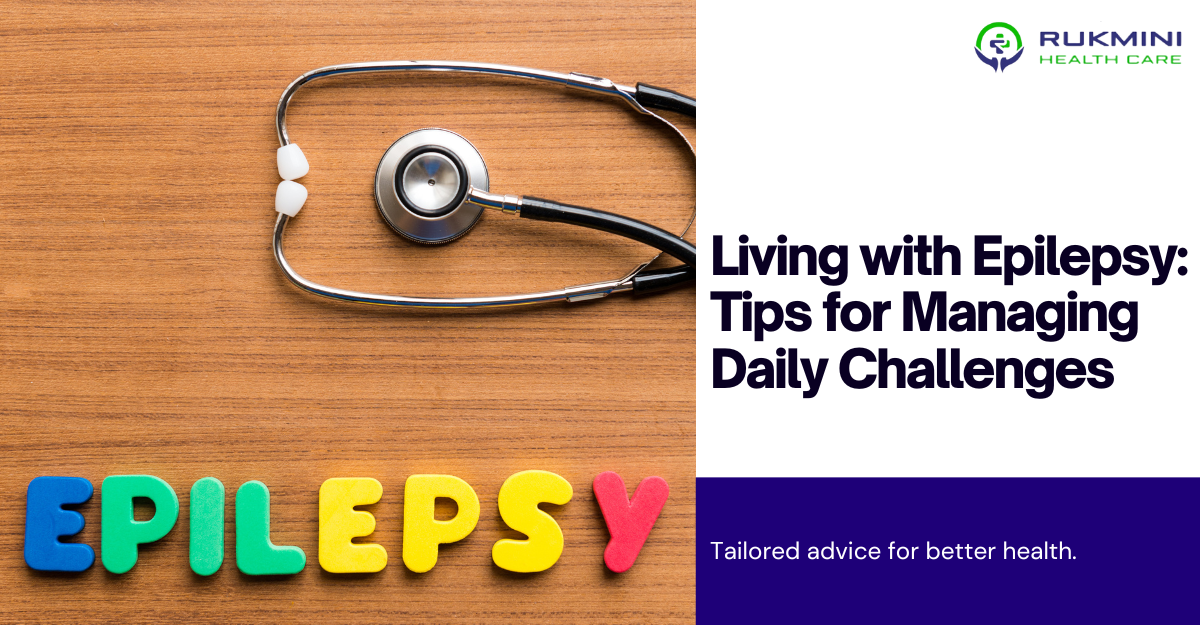Living with epilepsy presents unique challenges that can impact various aspects of daily life. From managing medication regimens to navigating social situations, individuals with epilepsy require support and resources to effectively cope with their condition. In this comprehensive guide, we will explore practical tips and strategies for managing the daily challenges associated with epilepsy, empowering individuals to lead fulfilling lives while prioritizing their health and well-being.
Understanding Epilepsy
What is Epilepsy?
Epilepsy is a neurological disorder characterized by recurrent seizures, which are sudden, unprovoked electrical disturbances in the brain. Seizures can vary in intensity, duration, and manifestation, ranging from brief episodes of staring to convulsive movements and loss of consciousness.
Types of Seizures
1. Generalized Seizures: Generalized seizures affect both sides of the brain and can result in loss of consciousness and widespread convulsions.
2. Focal (Partial) Seizures: Focal seizures originate in one area of the brain and may cause localized symptoms such as involuntary movements, sensory changes, or altered consciousness.
Causes of Epilepsy
Epilepsy can be caused by various factors, including genetic predisposition, brain trauma, infections, developmental disorders, and stroke. In many cases, the cause of epilepsy may not be identified (idiopathic epilepsy).
The symptoms of epilepsy can vary widely depending on the type of seizure and the part of the brain affected. Some common symptoms and signs of epilepsy include:
- Seizures: Seizures are the hallmark symptom of epilepsy. They can manifest in various ways, including:
- Convulsions: Involuntary jerking or shaking movements of the body.
- Loss of consciousness: Temporary loss of awareness or responsiveness.
- Staring spells: Brief periods of unresponsiveness or staring into space.
- Muscle rigidity or stiffness.
- Sensory symptoms: Abnormal sensations such as tingling, numbness, or strange smells or tastes.
- Emotional or cognitive changes: Sudden emotions or thoughts, confusion, memory lapses, or déjà vu experiences.
- Aura: Some individuals with epilepsy may experience an aura, which is a warning sign or sensation that precedes a seizure. Auras can vary widely and may include visual disturbances, odd sensations, or feelings of déjà vu.
- Postictal Period: After a seizure, individuals may experience a postictal period characterized by confusion, fatigue, headache, muscle soreness, or difficulty speaking.
It’s important to note that the symptoms of epilepsy can vary greatly among individuals, and not all seizures manifest with convulsions or loss of consciousness. Some seizures may be subtle and difficult to recognize, while others may be more dramatic. If you suspect that you or someone you know may be experiencing seizures or symptoms of epilepsy, it’s important to seek medical evaluation and appropriate diagnosis and treatment.
Tips for Managing Daily Challenges
Medication Management
1. Establish a Routine: Take medications at the same time each day to maintain consistent blood levels and minimize the risk of breakthrough seizures.
2. Use Pill Organizers: Organize medications in pill organizers labelled with the days of the week to ensure adherence to the prescribed regimen.
Seizure Preparedness
1. Create a Seizure Response Plan: Develop a seizure response plan outlining steps to take during a seizure, including how to protect the individual from injury and when to seek medical attention.
2. Wear Medical ID: Wear a medical identification bracelet or necklace indicating epilepsy diagnosis and emergency contact information in case of seizure-related emergencies.
Lifestyle Modifications
1. Get Adequate Sleep: Prioritize good sleep hygiene practices, such as maintaining a regular sleep schedule and creating a comfortable sleep environment, to reduce the risk of seizure triggers.
2. Manage Stress: Practice stress-reduction techniques like mindfulness, deep breathing exercises, or yoga to minimize stress levels, which can exacerbate seizures.
Safety Precautions
1. Avoid Triggers: Identify and avoid potential seizure triggers, such as flashing lights, certain medications, or alcohol consumption, to minimize seizure frequency.
2. Take Precautions During Activities: Exercise caution during activities that pose a risk of injury during a seizure, such as swimming or cooking, and consider implementing safety measures or modifications.
Seeking Support for Epilepsy Management
Living with epilepsy requires ongoing support and resources to effectively manage daily challenges and optimize quality of life. Rukmini Healthcare offers comprehensive epilepsy management services, including personalized treatment plans and support resources, to help individuals navigate their journey with epilepsy. Contact us today to schedule a consultation and explore how we can support you in managing your epilepsy and achieving your health goals.
Contact Information:
- Address: Biz Hub, First Floor, Infront Of Kalupada Seka, SCB Medical Rd, Ranihat, Cuttack, Odisha 753007
- Email: rukminihealthcare@gmail.com
- Phone: 94398 90891
Don’t let epilepsy control your life. Take control of your health and well-being with the support of Rukmini Healthcare.

